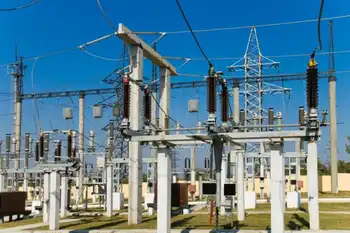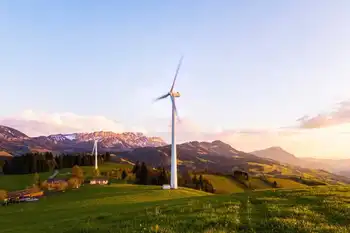Next 50 Years Holds Promise For Nuclear Energy
SANTA MONICA, CA -- - After a successful 50 years of bringing the "Atoms for Peace" initiative to fruition, nuclear power plants will become even more important in the 21st century, a top industry executive said recently.
Donald C. Hintz, chairman of the Nuclear Energy Institute (NEI) and president of Entergy Corp., noted that 103 reactors operating in 31 states provide electricity to one of every five U.S. homes and businesses, and provide 70 percent of the electricity that comes from sources that don't pollute the air. U.S. nuclear power plants in 2002 set an electricity production record for the fourth straight year, generating 780 billion kilowatt-hours (kwh) of electricity, 11 billion kilowatt-hours more than in 2001.
"Since 1990, we've seen an increase in output equivalent to 25 new 1,000 megawatt nuclear plants. That increased electricity production sustained the U.S. economy through boom times in the '90s, and is an important stabilizing factor in a time of economic uncertainty and international turmoil," Hintz told more than 250 attendees at NEI's annual conference.
Celebrating its 50th anniversary, the nuclear energy industry is well positioned for a bright future, Hintz said. "In our 50th year, we are carrying forward the legacy of the U.S. government's most successful energy policy--inaugurated in December 1953 with President Dwight Eisenhower's renowned 'Atoms for Peace' speech.
"In the next 50 years--and beyond--the ability to generate electricity with nuclear energy will grow even more important, but it may be outshone by the potential to produce hydrogen using nuclear technology, and to make available the waters of the world's oceans to grow crops and quench thirsts in arid regions," he said.
The Bush administration's energy policy includes a vital role for nuclear energy in assuring that Americans can benefit from a secure, diverse energy portfolio, he said.
"One of the most significant initiatives for the future of the industry is the President's $1.2 billion commitment to development of a hydrogen economy. The administration has acknowledged the potential value of nuclear energy in generating the massive amounts of electricity necessary to produce the needed quantities of hydrogen in the near term. Longer term, advanced nuclear technologies can be used to produce hydrogen directly."
National energy policy legislation being considered by the U.S. Senate includes provisions that would provide financial incentives for a limited number of advanced-design nuclear power plants to stimulate new plant construction. The legislation supports the Department of Energy's Nuclear Power 2010 initiative to achieve new nuclear power plant construction by the end of the decade.
The energy legislation also includes funding for a hydrogen production/electric power demonstration reactor in Idaho. Powering water desalinization plants is another area of opportunity for the industry, Hintz said. This dual role for nuclear energy already is being explored in some Asian countries, such as India.
"These next 50 years represent not only an opportunity for our industry, but a responsibility--to play an even greater role in bringing light where there is darkness, food where there is hunger, prosperity where there is poverty."
Among the industry's immediate challenges, he said, is to support approval of comprehensive energy legislation pending in Congress; to support the use of consumer payments to the Nuclear Waste Fund explicitly for the Yucca Mountain nuclear waste disposal project; to resolve material performance issues that have surfaced at some facilities; and to better inform the public and policymakers about the industry's strong nuclear plant security and emergency preparedness programs.
"Nuclear energy can play a vital role as the nation enters a new, aggressive power plant construction phase--if we're ready. We have a comprehensive plan in place that lays the groundwork for new nuclear plant construction, and we're two years along toward implementing it," Hintz said. "We're working on hundreds of other practical steps necessary to turn the new generation of nuclear technology from a drawing board concept to a solid business proposition that Wall Street will want to finance, and that companies will want to build and own."
The Nuclear Energy Institute is the nuclear energy industry's policy organization. Additional information about nuclear energy is available on NEI's Internet site at http://www.nei.org
Related News

94,000 lose electricity in LA area after fire at station
LOS ANGELES - About 94,000 customers were without electricity Saturday night after the Los Angeles Department of Water and Power shut down a power station in the northeast San Fernando Valley that caught fire, the agency said.
The fire at the station in the Northridge/Reseda area of Los Angeles started about 6:52 p.m. and involved equipment that carries high-voltage electricity and distributes it at lower voltages to customers in the surrounding area, the department said.
The department shut off power to the station as a precautionary move, and it is restoring power now that the fire has been put out. Initially, 140,000…




